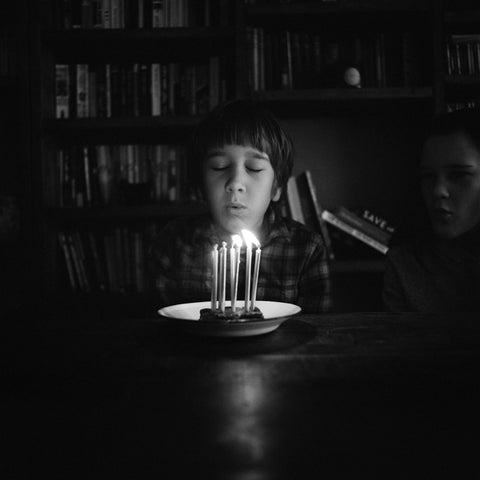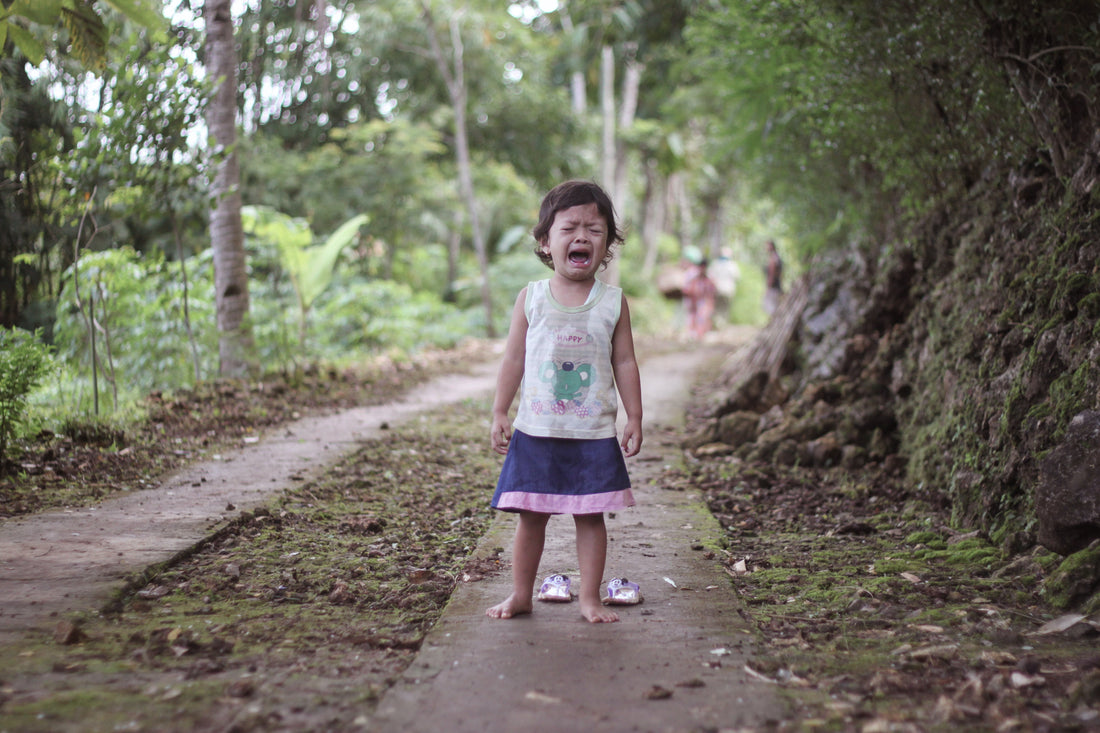Does your toddler dislike sleeping alone and want to climb into bed with you lately? Are they waking up at night screaming? Do they cry when they see a costumed mascot at the mall? All these are classic examples of things that preschoolers are scared of and there’s a reason why.
Around 3-4 years of age, your child’s mile-a-minute mind is on overdrive. They connect images of something they have seen on television or in books to what is happening around them and make stories up. But oftentimes, they find it difficult to separate truth from reality which results in them thinking up fantastical scenarios that seem scary.
While fear is a natural part of childhood development, it can cause your child a lot of distress. The best way to deal with this is to understand what exactly they are afraid of and why. To help you and your child get through this trying phase, we have listed a few common childhood fears, why they occur, and simple tips on how you can help your child overcome them.
Fear of loud noises
A sudden sound, especially one that comes without warning, is enough to startle the bravest adult. So of course, a three-year-old would get scared by noises like the pressure cooker, thunder, and firecrackers because there is no explanation attached to them. Your child may realize that they have not caused this sound and may be unable to respond to it rationally.
How to handle this:

The easiest way to help your child get through this fear is to announce its arrival. Let your child know when the firecrackers are about to go off or the pressure cooker is about to whistle. Encourage them to watch from a safe distance. You could even make a game of counting the seconds until you hear the next thunderclap. It’s hard to feel afraid if they are having fun!
Fear of the dark
Fear of the dark may be one of the most common childhood fears but it could cause a child a lot of anxiety. If your child is afraid of dark rooms and spaces, hear them out and find out what exactly they are scared of. There could be a lamp or a toy casting a large shadow on their wall that is causing their mind to conjure up something scary. Or maybe the soft rustle of leaves against their bedroom window sounds like the footsteps of approaching monsters.
How to handle this:

A good way to stop them from being afraid of the dark is to find the source and deal with it. What about the darkness is affecting them? See if you can remove the cause. Also help them embrace their fear of darkness with games. Read a bedtime story with a flashlight in a dark room. Buy a fun night light or a glow in the dark snuggle toy. These will make the dark seem 'normal'.
Fear of costumes
By this age, your preschooler has grown to understand what their parents, extended family, and friends look like. We all have common facial characteristics and similar bodies. So meeting a mascot at the mall who is dressed as a duck and speaking in a human language could be nerve-wracking! Children are used to seeing ducks in books or cartoons. But to see a duck taller than the average human is something that can cause nightmares.
How to handle this:

If your child is scared of a mascot or a costumed person, do not insist on taking pictures together or making them shake their hand. Walk away and calmly explain the costume to your child. Playing dress-up at home might be a good way to show slightly older children how costumes work. Over time, they will begin to understand that there is nothing to be afraid of.
Fear of water
This is a common fear at this stage, especially if your child is about to start a swim lesson. Some children may even refuse to wash their hair because they are uncomfortable with the sensation of water trickling down their face. This fear might be because of something they have watched on television or pictures in a book that suggests drowning. The sensation and the sound of water over their head and inside their eyes could then make them uncomfortable enough to swear off baths and pool time altogether!
How to handle this:

Tackle this fear by helping them face one day at a time. Encourage them to take showers on their own as you supervise. They could try getting their hair wet by taking palmfuls of water. Don’t force them to swim. Instead, have them watch an older sibling or a family member swim and let them see how much fun playing in the water is. Invest in good bath time and pool toys for added fun!
They’re little; their fears are big.
Watching your child get scared of something harmless may be frustrating for a parent but make sure you don’t belittle their fear. Take time to address it and slowly encourage them to face it. Remember that these fears are not only a passing phase but a marker of your child’s growth and fantastic imagination.
Check out our range of open-ended toys here:



2 comments
One of the best articles published these days. Little people have big fears and sometimes parents get carried away too thinking why are they doing it. This clearly explains how children get scared of things and how as parents we tackle them and give them the support they need.
Beautifully explained. My 9 month old runs towards me when pressure cooker whistles. Showing her and counting helped.